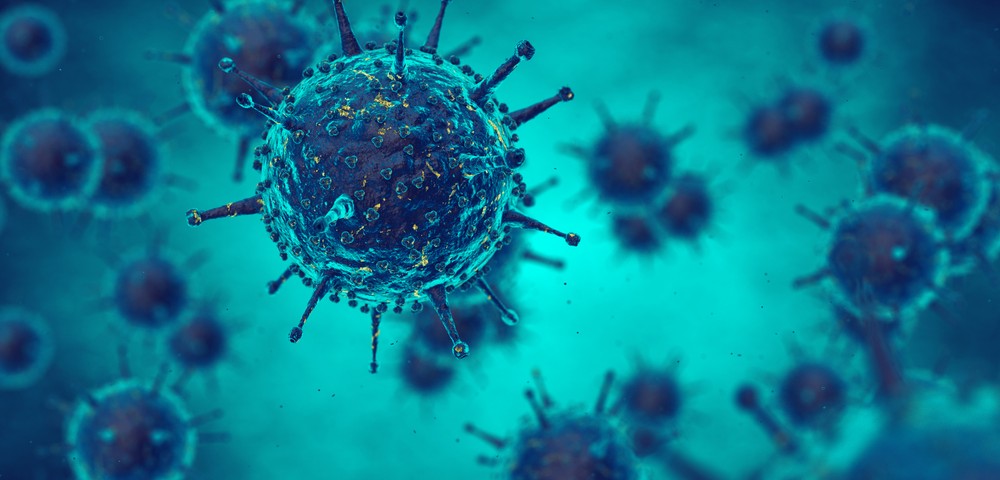University of Helsinki researchers recently shed light on the molecular events involved in the viral replication of Kaposi’s sarcoma herpesvirus, the cause of primary effusion lymphoma. This knowledge furthers the once poorly understood connection between cellular stress and herpesvirus reactivation, and may be used to develop new antiviral therapeutic strategies to treat human cancers caused by herpesviruses.
The research paper, “Oncogenic Herpesvirus Utilizes Stress-Induced Cell Cycle Checkpoints for Efficient Lytic Replication,” was published in PLOS Pathogens.
Herpesviruses are a family of viruses known to cause lifelong infection in humans, either at a latent state or by “waking up” and reactivating in response to stress conditions, leading to viral spreading and disease progression. While this process is observed as skin lesions in the herpes simplex virus, some viruses in this family are oncogenic and cause cancer in humans, including the Kaposi’s sarcoma herpes virus (KSHV) that causes Kaposi’s sarcoma and certain lymphoproliferative cancers, such as primary effusion lymphoma, an aggressive type of lymphoma for which there is no cure. The majority of tumor cells exist in a latent infection phase, but a small portion experiences lytic replication reactivation, causing cell death by lysis and spreading of the virus.
Researchers investigated the cellular stress conditions that favor the lytic reactivation of KSHV and its viral spread, and found a key mechanism in the molecular events the virus has evolved to utilize in order to progress disease. Through a series of genetic manipulation studies and microscopic technologies, researchers identified the E3 ubiquitin ligase MDM2 as a negative regulator of viral reactivation. Depletion of MDM2, a repressor of p53, led to the activation of the viral lytic phase and favored viral spread. In the lytic phase, p53 response was activated, leading to DNA damage and arrested DNA replication. Moreover, depletion of p21, a p53 target gene, restored cell cycle progression and impaired viral replication.
The results highlight the role of p53 and p21 as “stress sensor” proteins involved in successful viral replication, and demonstrated that KSHV’s successful replication is dependent on cell cycle inhibition. Moreover, researchers can now explain why KSHV has evolved to maintain a functional p53, a tumor suppression gene that is mutated in several types of cancers.


